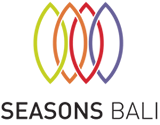Why Is Addiction Considered A Disease?
Some people may view addiction as a personal choice that an individual makes or as a behaviour that could be stopped willingly at any given time. But, over several years, vast amounts of research have changed the medical community’s understanding of addiction. Many medical professionals now see addictions of all kinds not only as just an addiction, but a complex psychological and physiological problem that demands careful treatment. Addiction has three main characteristics that cause it to be considered a disease.
- It has a lifelong course characterised by frequent relapses, cross addiction and a standard set of behavioural changes
- Like other chronic medical disorders, genetics plays a vital role in determining who is at risk to become addicted.
- There are effective medications that treat drug addiction by blocking the rewarding effects of drugs and decreasing drug cravings.
Society’s Opinion
In the 20th century, the narrative was often about how drug addicts and alcoholics are flawed people who are basically criminals. Although some of those opinions may seem outdated, there are some elements of that overall perception that still exist today. As recently as 2014, studies from the Johns Hopkins Bloomberg School of Public Health found that the general public still holds very negative views of those people who are suffering from addiction. The findings show that the general public feels that these patients should not be granted insurance, housing and employment policies when trying to seek help for themselves by attempting to check into a rehabilitation centre. On the other hand, the same people who feel that way hold more positive impressions of those who have a general mental illness.
Another reason for this is that the public is exposed to outdated images of addicts and the addiction scene in general. Imagery usually presents poor, homeless people who are more often than not from an ethnic minority group, living in the stereotypical neighbourhood areas. Researchers say that more and more drug abusers are your typical day to day white Americans living in the suburbs. They become addicted to their prescription medication, and then make the transition to harder, more dangerous drugs that work in similar ways.

What Should You Believe?
Although diseases like cancer, diabetes and heart disease often cannot be predicted, there are risk factors. Experts state that if you have chemically dependent family members, then you are more likely to suffer from addiction. There are things that you can do to lessen those chances, such as not drinking or using drugs at all. Some experts think that if it is a disease, then you can be treated for it, just as any other illness.
If addiction is a choice, you are not relying on chemical changes that take place in the brain. Excellent or healthy choices result in favourable circumstances where the right decisions are made. Poor choices equal negative consequences. Healing depends on making better choices and changing environmental factors. Opportunities may stem from peer pressure and the desire to deal with negative emotions and stress. Many other risk factors, such as dysfunction in families, also play a role.
Despite the evidence, your own experience and worldview can shape what you will believe about addiction being a disease or a choice. Your view can empower you by giving you the keys to understanding how addiction works. Knowledge, in this case, is power. Research indicates that treatment and changes in policy are likely to result from whether addiction is a disease or not. Although the experts have their view, remember that your opinion is the one that can impact you the most.
Transformation Starts Here
Taking that first step towards recovery is one of the most powerful things you can do. If you or a family member need help and you want to get the best treatment possible, get in touch with us now. With over twenty years of helping people to find peace in recovery, we are South East Asia’s Leading Addiction Treatment Centre.





